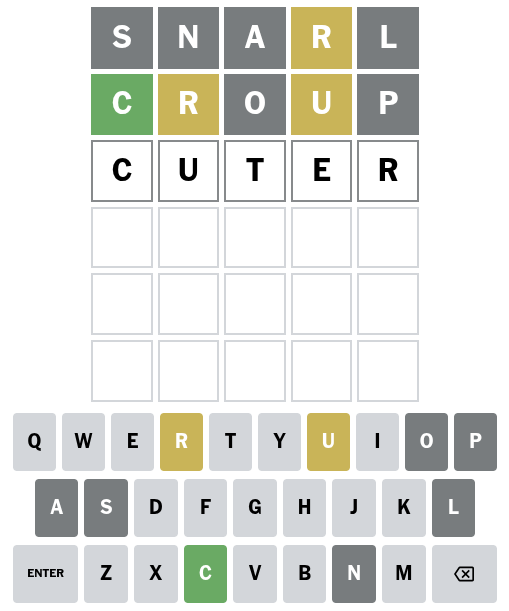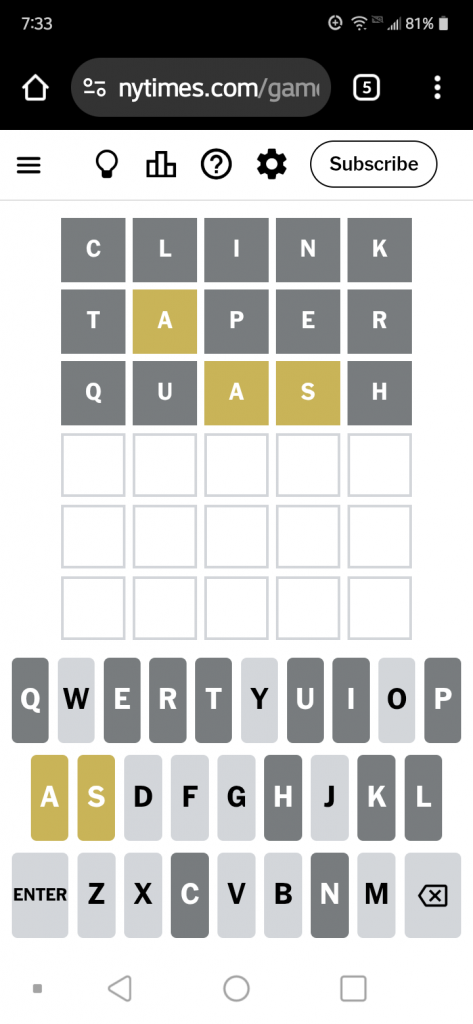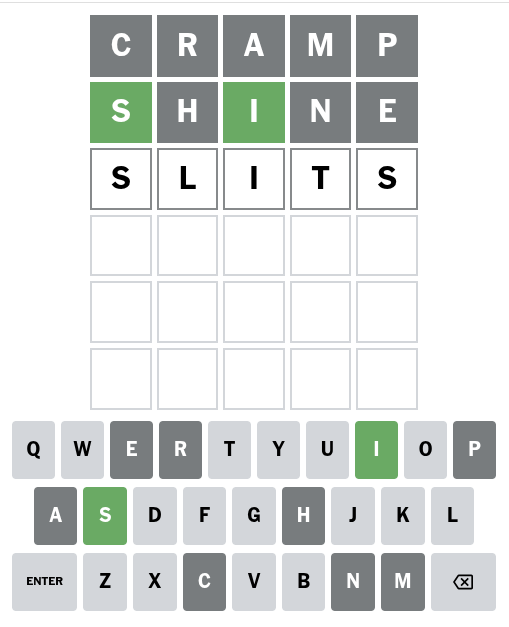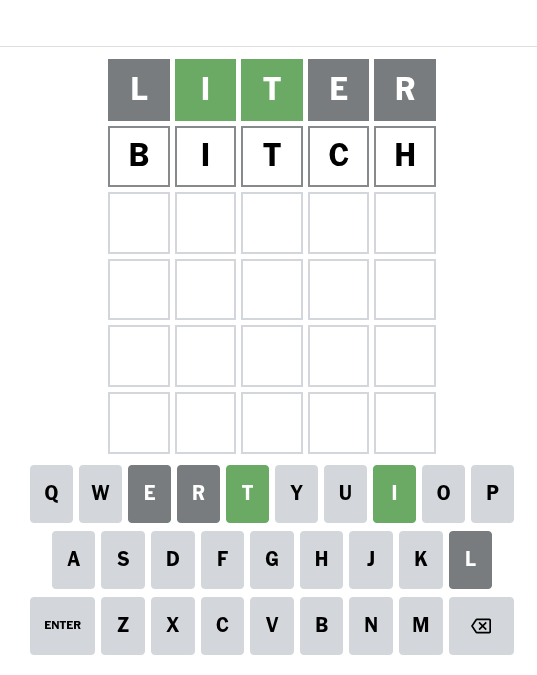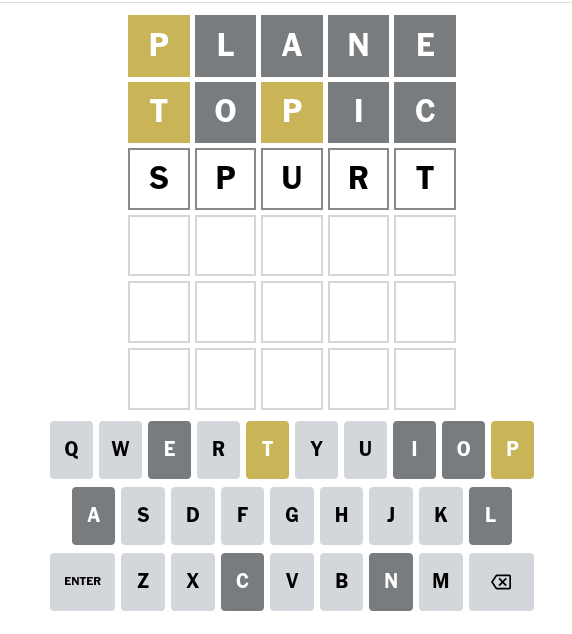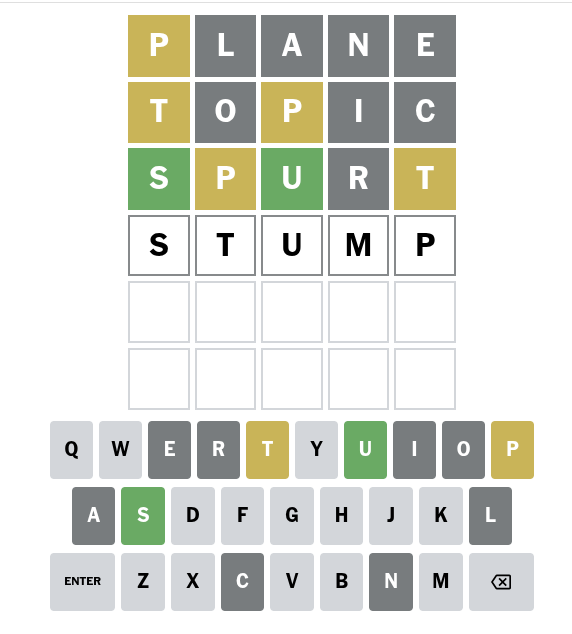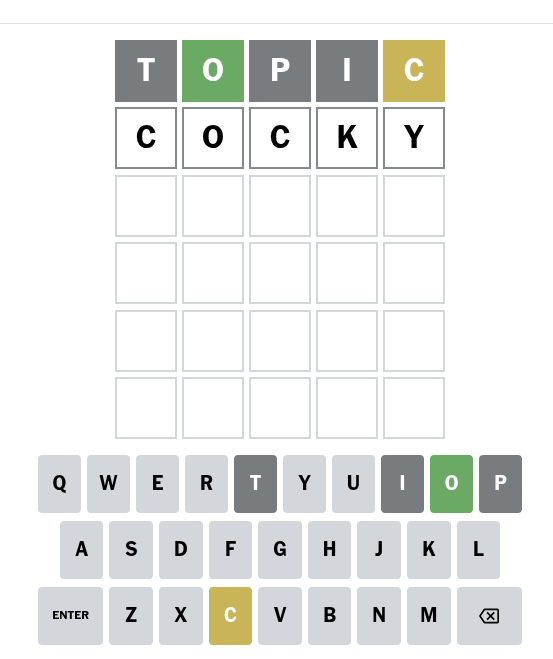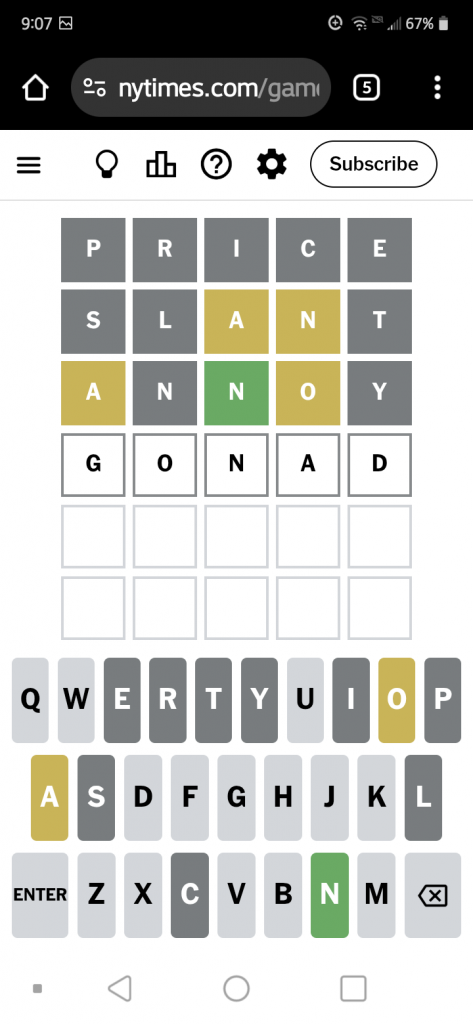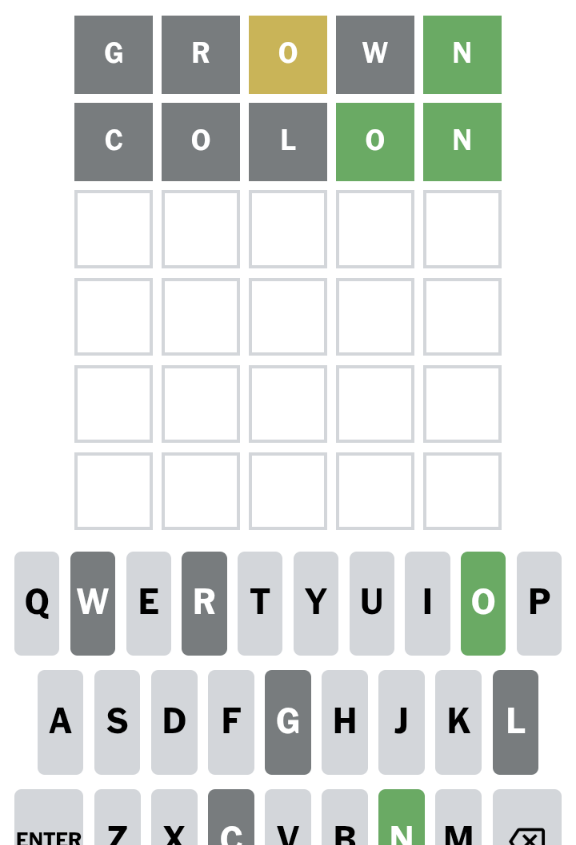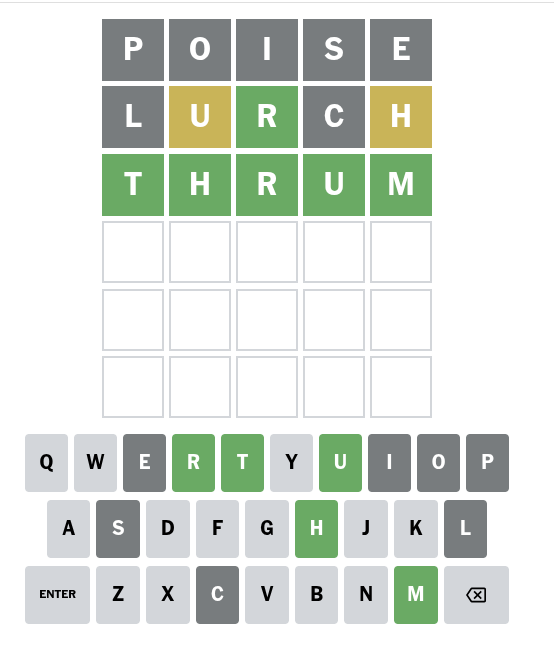When I play Wordle, I must sometimes choose between several possible solutions. Herewith is a guide that I use mentally to decide whether a word is unlikely as a solution. Note that even if a word is unlikely to be the final answer, that doesn’t mean the word would not be a good probe guess to narrow down possible solutions.
My guides below are largely based on the assumption that the audience to be mostly USA residents (“Americans”), if there is a separate Wordle version for UK English or another language, some of the guides below must be adapted.
I call these “guides” rather than “rules” because I don’t expect them to be hard and fast. Any or all might be relaxed in the future.
Repeats
Guide 1. Repeats of former solutions . So if the solution to Wordle #17 was IRONY, expect that no subsequent puzzles would also have that solution. Mathematically, this guide must eventually be violated, unless Wordle itself ends.
Offensive
The second group of guides is based on the assumption that the puzzle makers wish to avoid offense, if possible.
Guide 2. Swear words. WHORE is an example. Many swear words have 4 letters, but might become 5 letters by adding an S. Words like C*NTS and F*CKS would already have been excluded by another guide below, but are doubly excluded by this guide.
Guide 3. Words that might be swear words, even if fine in other context. Words that might refer to Roosters, Donkey, Cats, and Female dogs (COCKS, ASSES, PUSSY, BITCH) are off limits.
Guide 4. Intimate or Sexual references, even if scientifically named. PENIS, VULVA, LABIA, SPERM. UVULA might be okay. SPURT would be improbable. Even BUSTY might be excluded for now.
Guide 5. Words considered to be racist, even if they were historically acceptable, such as NEGRO. It would offend some American ears today.
Guide 6. Politically divisive words, even if they have other meanings, such as TRUMP (special suit in a card game) or TESLA (unit of magnetic flux).
Guide 7. Words associated with violence, such as LYNCH.
Guide 8. Words considered in poor taste given current events, especially tragedies. For example, DROWN right after a flood killed school children. Or SHOOT after a mass shooting (so we probably won’t see that word for a long time). Even HUSSY might be held off depending on the news. LOSER or GREAT probably wouldn’t be the solution just after an election, as the puzzle makers would want to avoid the appearance of condemnation or endorsement.
Uncommon
The following guides are based on the assumption that only words in common usage in the USA are chosen:
Guide 9. British or Archaic English spellings. So MOULD is excluded, and WILDE is right out.
Guide 10. Archaic words like SHIED (meaning threw) SOOTH (meaning true), and INGLE (fireplace).
Guide 11. Non-English words that are not yet widely adopted by Americans. For example, the Hawaiian ALOHA is probably okay, but not LOULU. But then again, I recently saw KEFIR as a solution, so maybe this guide is going away.
Guide 12. Something that is technically a word, but that most people would never find cause to use in a sentence, like UNUSE, SATER, or UNGET.
Guide 13. Contemporary words from science or a specialty that a common person wouldn’t know such as MESON. However, as language evolves, such words could work their way into common parlance.
Word Form
Guide 14. Plural nouns like BIRDS, singular verbs like GROWS. That is, 4-letter words with an S added at the end. Singular verbs like GROWS. The exception is when the plural is the most common form of the word, such as PANTS, or MUMPS. I don’t know whether this guide will apply in the future; it does appear to have applied since the inception of Wordle.
Guide 15. A 4-letter word made into 5 letters simply by appending an R or D. This is a very weak guide, and does not apply when the suffixed word has a strong meaning on its own. DINER (a cafe) would not be excluded, but DINED might be. However, I have to bear in mind that just because a word seems uncommon to me, doesn’t necessarily mean that it would actually be uncommon. I didn’t think that BALER would be an answer, for instance.
Proper Names
Guide 16. Proper names, unless the name has another common meaning. LINDA is unlikely to be a solution. PETER might be (“The fire will peter out.”). I’m not sure whether the proper name of a country like SPAIN would be excluded.
Examples
